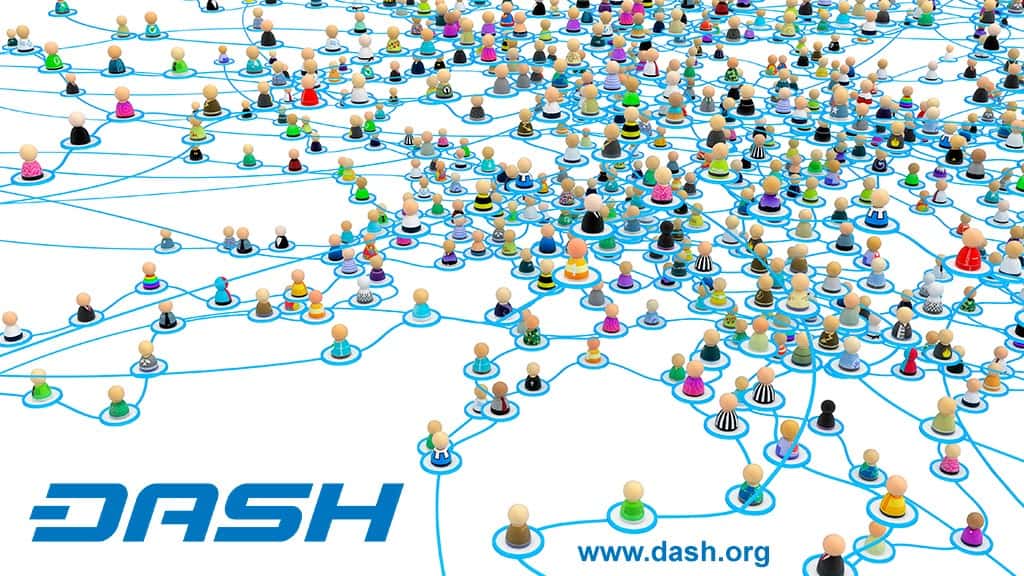Privacy focused cryptocurrency Dash continues expansion
Dash is gearing up to launch Evolution. The new design will incorporate more decentralized services such as a cloud file-sharing system (DashDrive), a wallet (DashPay) and an API (DAPI).
Dash is gearing up to launch Evolution. The new design will incorporate more decentralized services such as an internal data backend (DashDrive), a wallet (DashPay) and an API (DAPI).
Over time, cryptocurrency users are becoming more concerned with privacy and speed. Dash has projected itself as a cryptocurrency that offers these values. The community around it is robust and strongly believes that it is the best cryptocurrency.
Others, however, think the altcoin doesn’t conform to the philosophy of decentralization. A user on the Bitcointalk forum, who goes by the name Generalizethis, states “Trustless decentralization is necessary for any cryptocurrency to succeed at being disruptive. Dash’s failure is that it built a centralizing flaw that aggregates coins to those who run nodes and layering power functions (votes, fees, privacy, etc…) onto these nodes.”
Evan Duffield, a developer and entrepreneur, launched Dash as XCoin (XCO), in January 2014. His goal was to overcome slow transaction confirmation times and a lack of privacy in cryptocurrency usage.
A month after launching, XCoin changed to Darkcoin, and in March 2015 it was rebranded as Dash.
“We decided to change the name to Dash because we believe it better represents our new vision, to create a medium of exchange that is both private and instant for the masses.”
— – Evan Duffield
Dash is taking advantage of the rise of startups such as Elliptic, which offers services that track bitcoin transactions for both private businesses and government agencies.
To improve anonymity, Dash has an inbuilt mixing feature called Darksend, or Privatesend, that is decentralized. Apart from not coming with an extra cost, Dash promises that Darksend reduces the risk of a hack, or a rogue administrator stealing users’ funds.
With Dash, instant payment is part of the cryptocurrency protocol. Developers have called this feature InstantSend, or IntantX, and it makes it possible to confirm transactions in seconds.
Just like bitcoin, Dash has miners who build consensus on the coin’s ledger and nodes that keep record of the ledger and propagate transactions. Unlike bitcoin, however, Dash has a special category of nodes known as masternodes. Masternodes make PrivateSend and Instantsend possible.
“Master Nodes are a new concept in digital currency, where users are incentivized to run full nodes and provide extra services to the network such as Darksend and InstantX.”
- Duffield
While bitcoin pays the full mining reward to miners, Dash splits rewards among miners, masternodes and the treasury for the project. The miners get 45%, 45% goes to masternodes and 10% is set aside for development, marketing and auditing.
Critics have pointed out that masternodes are harmful to the system. “Since the masternode system collects the revenue that determines its degree of centralization, and that centralization can’t be verified to any statistical certainty, we should assume that it is increasingly trending towards a traditional oligarchy or monarchy, where one or a few have undue power over the entire system—how it behaves, the distribution and security of its benefits,” states Generalizethis on Bitcointalk.
In addition to providing privacy to users and confirming transactions in seconds, masternodes also play a primary role in governance. They vote on how the 10% of funds set aside for administrative purposes is spent. Members of the community submit project proposals, which the owners of masternodes vote on.
To run a Dash masternode, you must lock in a collateral of 1,000 dash, about US$16,000 at this time, which gives you the incentive to provide sound governance. The investment currently earns you about 2 dash per month, around US$32.
However, not everyone who wants to set up a Dash masternode can raise 1,000 dash, and there are now masternode pools. People contribute small amounts to join together and start a node. They share the proceeds in the percentages according to each person’s collateral contribution. Splawiks and Masternode.me are the most active of these platforms.
Like any centralized service within the cryptocurrency space, however, pools come with the risk of scam. Funds remain in one wallet and only one person is in charge of the private keys. If that person decides to go rogue, then the other investors will lose their money without recourse.
Many still believe Dash deserves to be given a chance. TaoOfSaatoshi on Bitcointalk states, “The system works as designed, and is a marvel of decentralized governance. It is not perfect, though, and will be fine-tuned over time.”
On the adoption front, Dash is a long way from becoming an equal to bitcoin. Far fewer merchants accept it as payment, and it has a market capitalization of about $100 million, while bitcoin’s stands at around $12 billion.
Rupert Hackett is the general manager of Bitcoin.com.au and BuyaBitcoin.com.au. Rupert specializes in the digital currency and digital payment space and holds the world’s first Master’s degree in digital currencies.

Don’t miss out – Find out more today



